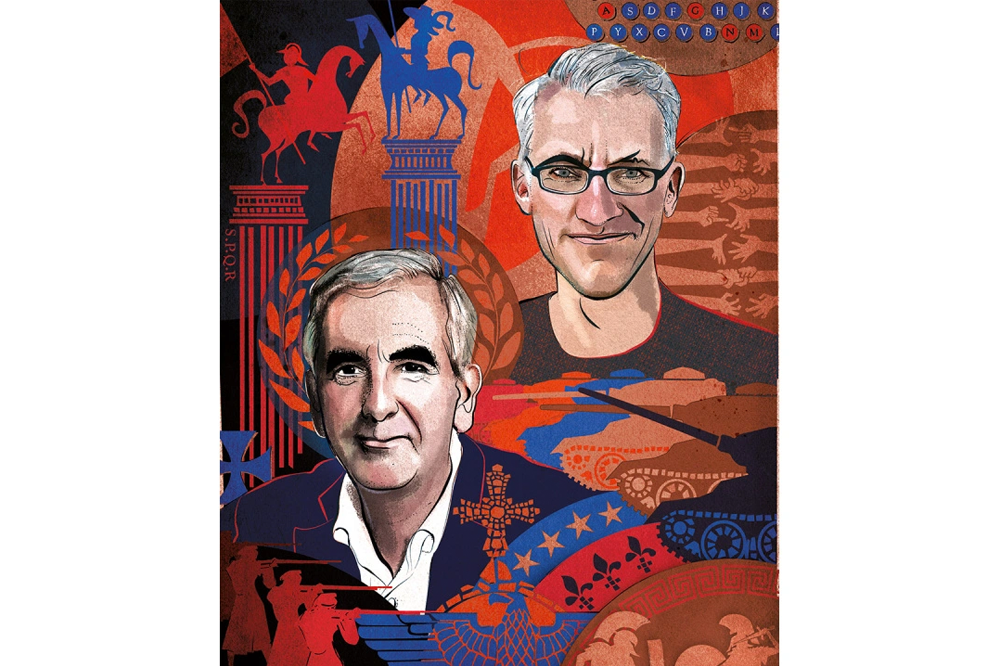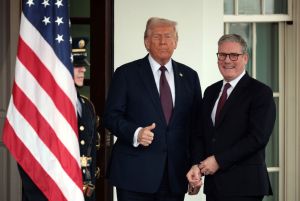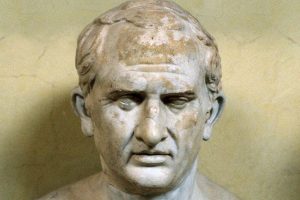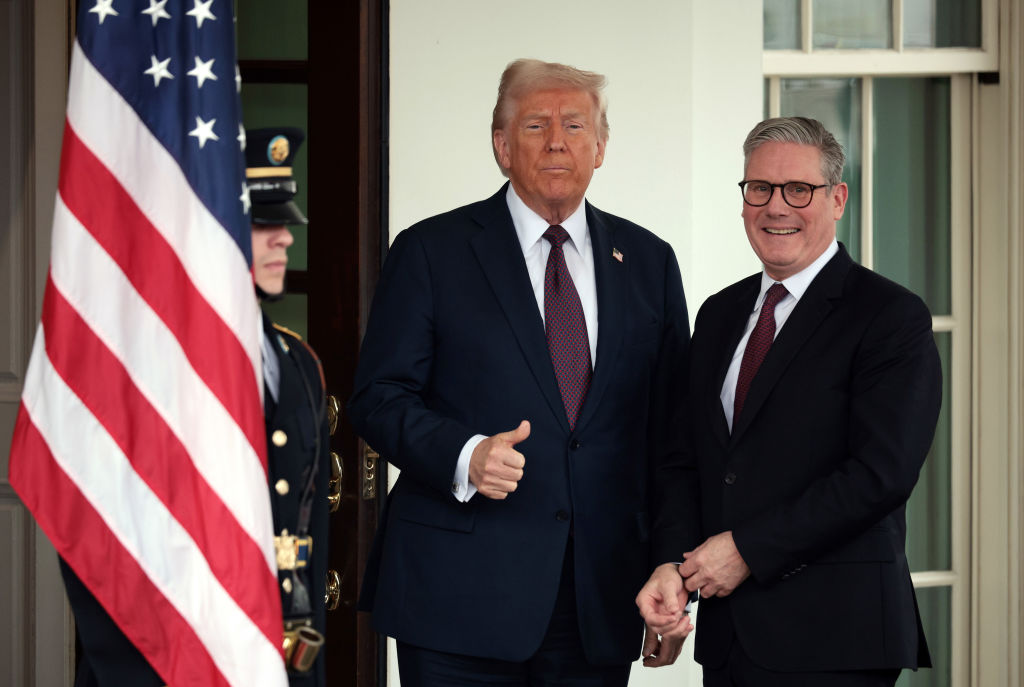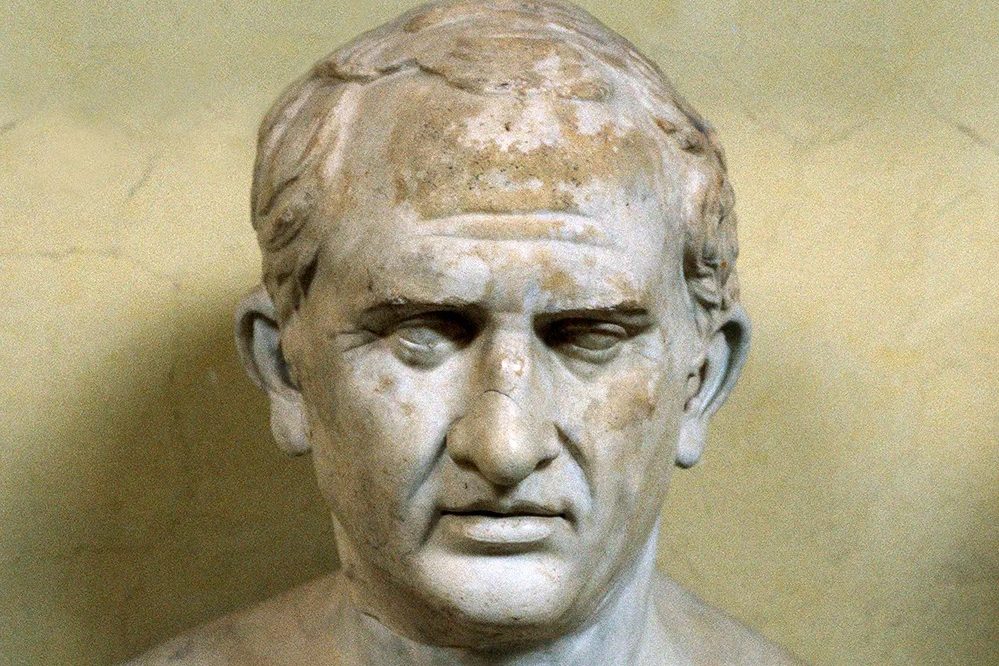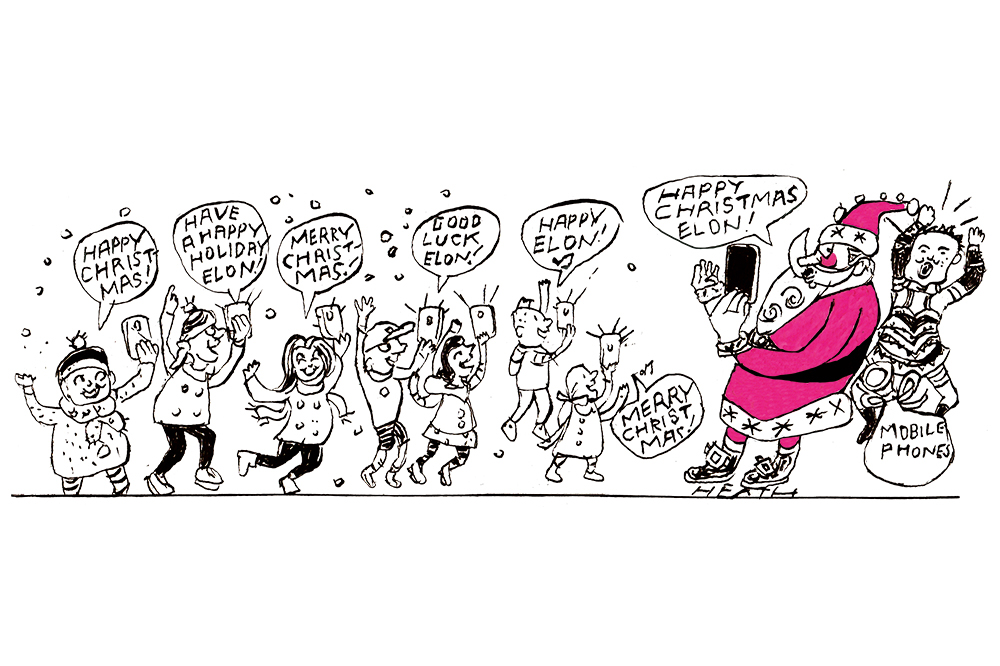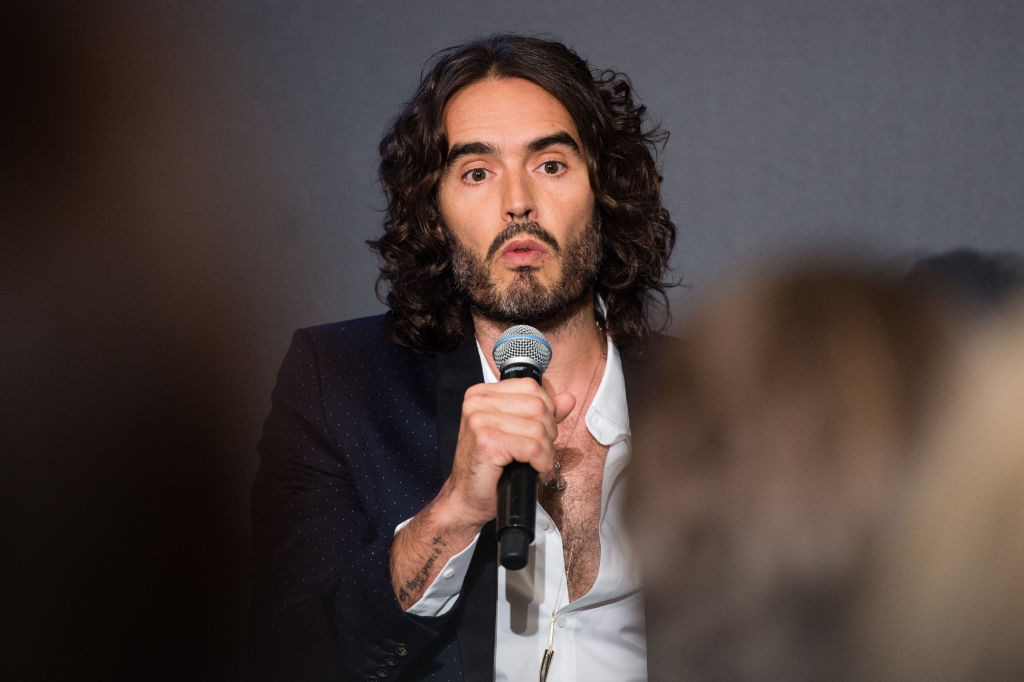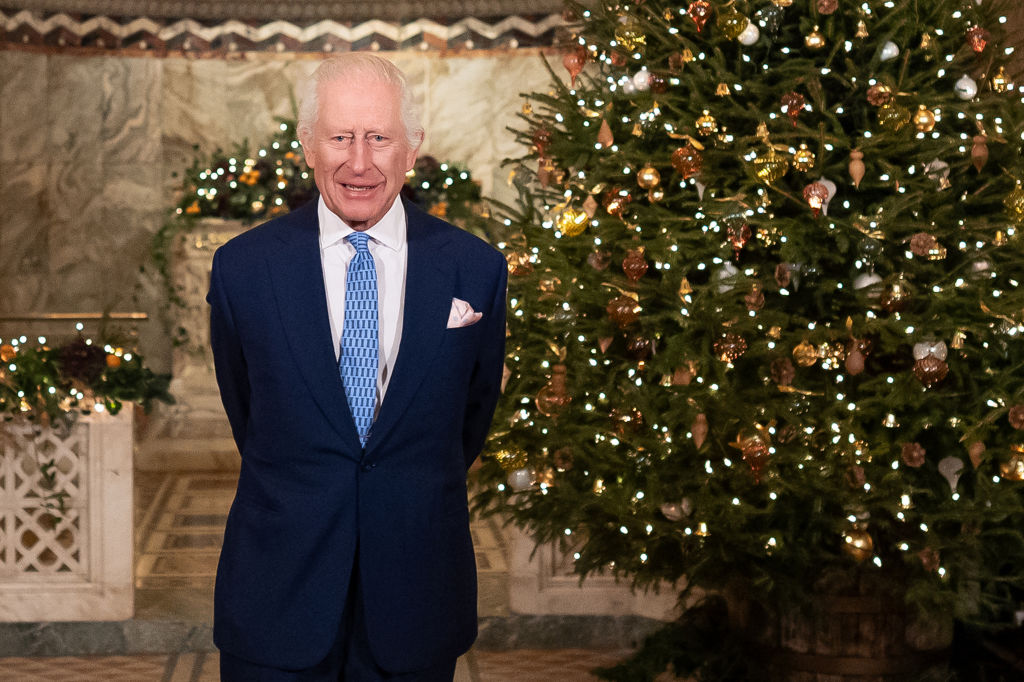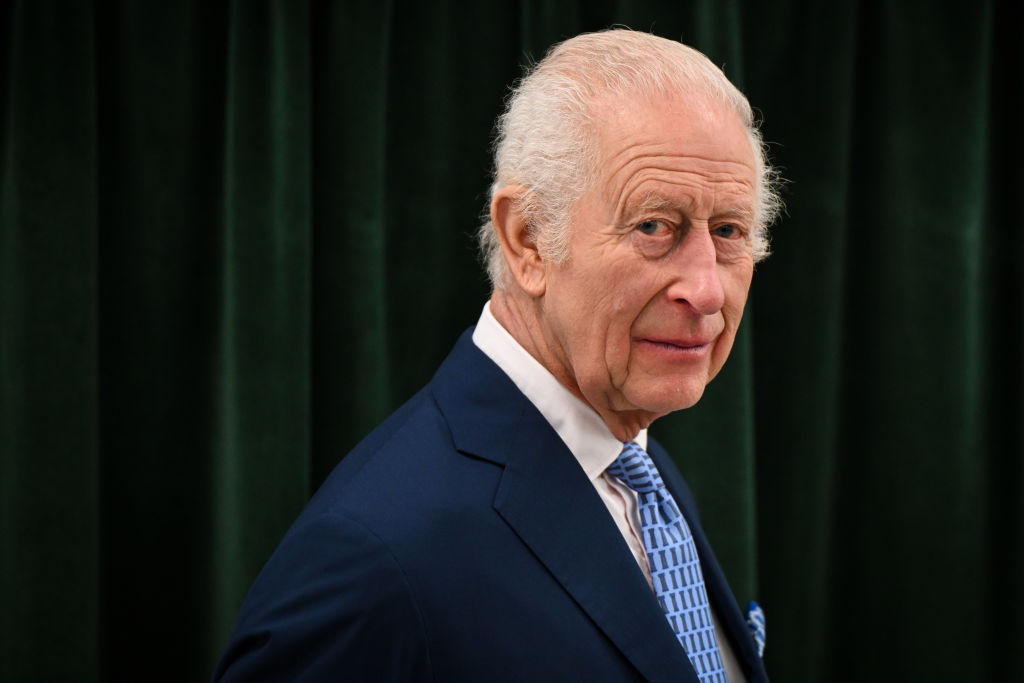Tom Holland: Here’s something I always wonder when I read one of your books. You’ve written novels set in the present, you’ve even written a novel set in the future, but overwhelmingly your fiction is set in past periods, spanning ancient Rome up to the second world war. What is it about the past that appeals most to you as a novelist? The mirror that it holds up to the present or the sense of difference from the way we see the world?
Robert Harris: I’ve always been very interested in history. Really, but for the accident of having an English teacher who pushed me towards studying English, I would probably have studied history and indeed thought of changing halfway through my course in Cambridge. But it would have meant doing four years. So I didn’t. I’ve always been fascinated by how people lived, with the way societies were organized, with what it might have been like to have been alive in the past. I was born twelve years after the end of the second world war, and it was still a very real thing when I was growing up. I felt the weight of the past in the present as I lived it.
TH: I remember you did an article about it in the Sunday Times [of London] in the 1990s. I think it was accompanied by a picture of Hitler with the EU flag. And you made comparisons between Hitler’s plans for Europe and the EU, which in light of what subsequently happened, I thought it was an interesting irony that it should have been you in that article who was making the comparisons. Was that something that you found particularly provocative when you wrote Fatherland?
RH: I wrote Fatherland as a result of writing a book about the Hitler diaries, during which I read a lot of Hitler’s table talk. He laid out his plans for Europe as it would be after his victory, which he thought was coming. It would have been a Europe organized around German domination of currency and trade and so on. It was a time when Germany had reunified and become once again this country of 80 million at the heart of Europe. So it was a kind of jeu d’esprit, really. Listen folks, I don’t mean you to take me seriously! It was mischievous. No more than that. But it is interesting because the great question remains: how do you accommodate a country as powerful as Germany within a European polity? That question doesn’t go away. It amuses me that everyone thinks the question of Britain’s relationship with Europe was settled at 9 p.m. on June 23, 2016, when actually the story has been going on for centuries. It will never be settled.
TH: And then you went on to write Pompeii and the trilogy of books about Cicero. People have often assumed the Cicero books reflect your experience of engagement with New Labour. Was that part of the appeal of turning to Rome?
RH: Not really. I turned to Rome because politics has always fascinated me. I had just finished Pompeii, and then I read your book Rubicon and it struck me that here was the political novel I could write. I could write it because so many of the great Roman public figures at that time you could recognize as archetypes. Cato was an Enoch Powell or Tony Benn. Crassus — the millionaire trying to buy his way into politics. Cicero — the crafty lawyer playing one side off against another. It struck me as a way of writing about politics and the struggle for politics. Now, my greatest first-hand experience of politics was with New Labour and particularly Tony Blair. So I was able to draw on that experience. But the books, if they’re about anything, are about America and the end of a republic that collapses because it can no longer sustain the pressure.
TH: The collapse of a republic — that is also the theme of your new book, Act of Oblivion. Again, to come back to this question of whether the interest of the past is the fact that it’s different from us or that it holds a mirror up to us. The seventeenth century, and particularly the Civil War, is resonant for a country as divided as Britain is at the moment. Was that the source of the appeal or was it the inherent drama of the story that you tell, the pursuit of the regicide, the men who signed the death warrant for King Charles I?
RH: It’s always the drama of the story. That’s why I’m a novelist, rather than a historian. In this case, it was the idea of inventing the figure who might have pursued these regicides year after year, across America, in England. Who would have organized it? How would they have done it? It’s always the story. And then you find, as most people do who write historical novels, that you’re really writing about the present. There’s something subconsciously that drew you to the story because of its nature. It calls out to you, beneath the surface, and that’s what you respond to. I don’t think: “Oh, I’m going to write about divided Britain.” That would be boring.
TH: I guess the reason I ask is that when it comes to the two men who are pursued and in whose heads we live quite a lot in the book, you show us the inner workings of their minds, their hopes, their emotions and their religious convictions. You bring to life people who in many ways are quite distant from us. How much of a challenge was that?
RH: It was a very big challenge. As I say, I was drawn to the drama of the chase. Then I realized I’d landed myself with a problem of writing about two Puritan colonels [Edward Whalley and William Goffe]. I had a similar thing, oddly enough, when I was starting out to write Pompeii, which I thought was a crazy venture. I went to Pompeii and walked through the ruins. I felt the heat on my back and saw the outline of Vesuvius in the dazzling August sky and smelt water on stone. I realized I was experiencing everything that my character would have experienced.
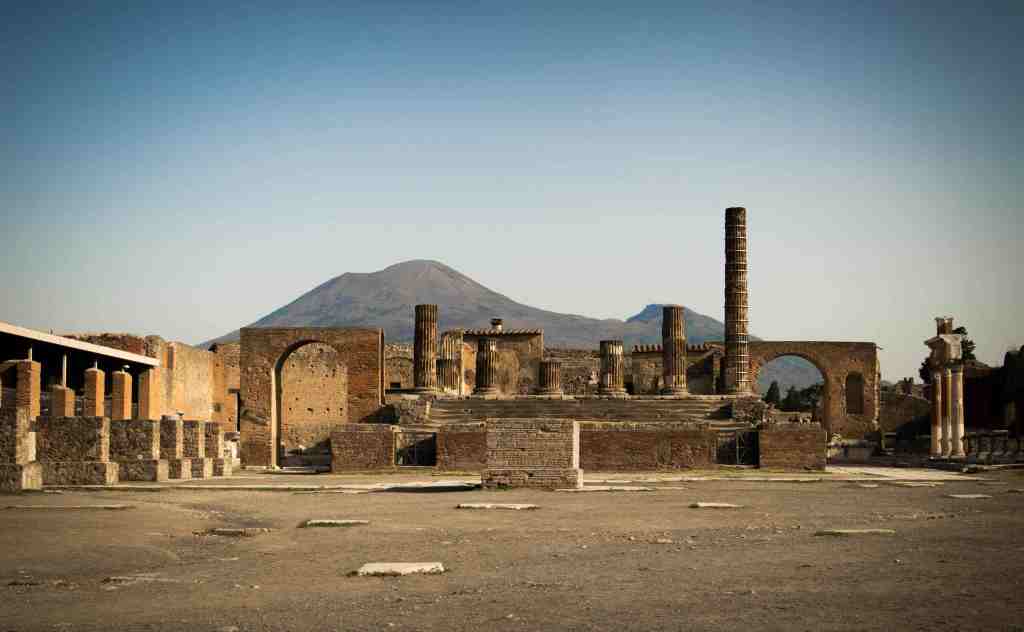
Well, with Whalley and Goffe, I started by thinking: what are the similarities that we have with them? First of all, they are practical men. They are essentially very successful career soldiers. They have their relationship, father-in-law and son-in-law, which seemed to me quite interesting. I was very fond of my late father-in-law, but I wouldn’t have wanted to go on the run with him. Whalley was a political moderate; he opposed Cromwell’s punitive expedition to Ireland, and that humanized him. What humanized Goffe was his love for his wife, Whalley’s daughter, which we know about from very tender letters they wrote to one another. So gradually I pieced together, I hope, rounded characters without sacrificing the fact that they would have read the Bible at least twice a day and they would have filled their speech with biblical references. I tried to meld all these things together.
TH: They are the quarry, they are the parliamentarians, they are the regicides. But you also have a Javert figure, Richard Nayler, the man who is constantly on the hunt and he becomes possessed by a sense of his quest. Did you come to dislike him?
RH: No, I liked him. One of the things I realized as I read more about the Civil War was that I was no Puritan. I might have been a Parliamentarian, but I was not a Puritan. My instincts are far more Cavalier.
TH: Would you rather have lived under Cromwell or Charles II, do you think?
RH: Charles II because I would have liked to have gone to the theater. I would have liked to have listened to music. I would not like to have some miserable devil telling me that I couldn’t celebrate Christmas. There was much wrong with Charles II’s court, but I did have an admiration for Sir Edward Hyde, Lord Clarendon, who is in the kind of Ciceronian tradition of wanting to keep the show on the road. Nayler is ruthless and reflects the cruelty of the age. But I put into his mouth and thoughts a lot of how I would have felt going out to Puritan New England and trying to make progress through this crazy landscape with all these religious zealots all around.
As I wrote, I realized, here is a very important strand of the DNA of modern America. One of the things a visitor from Europe to America always finds striking is the way that religion is woven into politics. It’s completely unlike anything in this country. Cromwell’s religious and political revolution sailed on after its defeat in England in the arc of New England.
TH: It’s strange that the trace elements of the Civil War and of Cromwell’s period of power are more palpable in America than they are in England. And yet obviously the impact in England — and Britain more generally and Ireland — is incredibly profound. It was Michael Foot’s father who famously asked the question “On which side would you have fought at Marston Moor?”, the great Civil War battle fought between Cromwell and Prince Rupert. The answer was the key to his understanding of the person’s politics. Whose side would you have fought at Marston Moor?
RH: Instinctively I would have been on the side of parliament against the king. But I don’t think I would have been one of the Ironsides, the Protestant Taliban, as it were, that eventually smashed parliament and expelled those members who didn’t agree with the army in order to put the king on trial. If there is a guiding thread through most of my books, it is an aversion to certainty and a fondness for those who doubt. I dislike certainty. I dislike the way people twist the facts and adjust them to their philosophy. I’ve seen that throughout my career as a journalist and I know how destructive that is. That tendency seems to have got worse and worse as time has gone on.
***
TH: Was the Civil War a period that you knew well before you began writing?
RH: I’d certainly never dressed up in uniform at weekends and gone into battle. I’m familiar with the era, but it’s curiously secondary in Britain to the Tudors, who are inescapable not only in academic work, but in popular culture. For some reason the Civil War isn’t. And yet it’s a stark fact that England was a republic for eleven years in the seventeenth century, 150 years before the French, 250 years before the Russians. We didn’t just get rid of Charles I, we got rid of the institution of the monarchy, the lords and the bishops. It is a huge thing in our nation’s history. It was a curious accident that a week after the book came out, the Queen died and then we had the accession of King Charles III. The name alone links us to that period. Then there was the accession with the Privy Council on the Saturday and the dealing with all the oaths about the Church of Scotland on the Sunday — the language was all seventeenth century. You realize that this is where we come from; it all stems from the seventeenth century and the settlement with parliament.
TH: What was your emotional response to the death of the Queen and the accession of the King?
RH: It moved me and it fascinated me. Years ago, I was a republican. Just logically, it seems that a modern state should not be organized in this way. Now my opinion is completely switched. I had a conversation with Eric Hobsbawm just before he died, and he said that the most civilized countries to live under, with the best guarantee of freedom in the world, were constitutional monarchies. He was right. After the Brexit division and the political chaos that has ensued, the madness of all these various prime ministers and resignations, it was a relief to see, from the passing of the Queen, the new figurehead marching through London. In my old age I found the continuity moving and important. Who would want to live under the political constitution of the United States at the moment, with their elected king? This country’s separation of politics from the state is serving us well in what might otherwise be a much worse and more divided time. So I can see why some people regard General Monck as one of the great figures of history.

TH: He is a parliamentarian who brings the army round to back Charles II and presides over the spirit of compromise – the essence of the restoration.
RH: Exactly. The deal struck between Sir Edward Hyde and General Monck was the Act of Oblivion. We will start again, no recriminations, except for the people who executed the king. This aftermath of a revolution, the clearing up, the smell of gunpowder still lingering in the air — it’s always an interesting time in history.
***
TH: I read your book during the final two weeks of Truss’s prime ministership. What affected me reading it with that background was the incredible sense of yearning that your characters have for a degree of normality, to feel that chaos has been brought to an end. I felt that very strongly as a result of the political context that we were living through. Britain in the seventeenth century was a byword on the continent for a kind of mad political experiment and a kind of monstrous anarchy. We are used to thinking of ourselves now as a byword for constitutional stability and for sensible, pragmatic politics. But perhaps there’s a faint sense in which the past few years have been a return in that sense to the seventeenth century.
RH: Yes, I think that that’s true. I’ve just got back from Germany, and they’re wondering what’s happened to this country, with its reputation for pragmatic deal-making, no big grand schemes, no sudden lurches, observance of the rule of law, stability: where on earth has that country gone?
***
TH: You’ve written a lot about the past, but you’ve also written a really extraordinary work of science fiction [The Fear Index], which is a kind of blend of cyberpunk and Frankenstein. And then also you wrote a novel, The Second Sleep, set in the very distant future — 800 years, isn’t it? — where it’s a Britain that turns out to have forgotten industrialization. Does science fiction interest you as well as historical fiction?
RH: It’s an interesting question. I hadn’t really thought about science fiction very much, but I realized when I look back that one of the writers I used to read an awful lot when I was a boy was H.G. Wells. Wells was incredibly interested in politics and used the tools of his imagination to address political and social issues. I know that a lot of people thought a post-apocalyptic novel was a strange thing for me to have written. But it was part of my fascination with politics. I’m not interested in writing something set in outer space.
TH: You might be!
RH: I’ll be writing something set in a new galaxy. Every time I think that I’ve finally stopped wandering, I set off down some other avenue. You asked right at the beginning how I see the past and I think one of the things I do strongly feel — I don’t know whether you’d agree with this — is that a man like Cicero is virtually no different to us. He’s not an alien figure.
TH: I think there are aspects of him that are very familiar, worrying about the cracks in the wall of one of his villas or whatever. But I think the Roman Republic is, in a way, unfathomably weird. What I have found over the course of thinking and writing about Rome is, the more I do it, the stranger the Romans seem. Cicero is a really fascinating example because he has conditioned us. And when I say us, I mean West Europeans. People have been reading him for centuries and centuries and he has been the bedrock of education. In that sense, he has forged our understanding of what politics is and what philosophy is.
RH: I’m struck by the similarity of his philosophy to the message of Christianity: the good life is the life of helping others and doing good. That’s the only way to peace, and that’s the only way to immortality, to a settled feeling of not being afraid of death. If you live a life like Caesar, he thinks his is a wretched life. That seems to me to be quite a bridge to our times.
TH: You see, I think that we are closer to the religious radicals that you write about in Act of Oblivion than we are to Cicero. Cicero is a more distant, stranger figure than those are, even though you can absolutely imagine sitting down and having a chat with him about what’s going on in the world. But if you think about the utter conviction that the religious radicals have — that the last should be first and the first should be last, or the Fifth Monarchist, the idea that Christ will come and that the world is threatened with its end — I think that those are the instincts that are ruling contemporary society.
RH: The Fifth Monarchist instinct is one of the reasons America’s religious right supports Israel. It is to do with the rapture and the return of Christ to Earth. Really, in a sense, that’s my point: the rationality of a Cicero is certainly closer to me than the seventeenth century or the religious right in America now.
TH: It’s not just on the religious right. I was thinking more in the context of the JustStopOil protesters who’ve been videoing themselves on bridges over the M25 — the sense of their utter passionate conviction and that their message has to be proclaimed and that without their message, there will be no salvation. It’s not so distant from what the radicals in your book believed. I mean, the author of the apocalypse is different. It’s not God’s will; it’s not an apocalypse that’s been written in the Book of Revelation. But it is an apocalypse that is being visited on us for our sins.
RH: There’s definitely a puritanical belief on the left that consumption is sinful: shut down people’s modes of transport or attack works of art. That’s quite extraordinary, isn’t it? That’s like an instinct from the Cromwellian era: smashing up the stained glass.
***
RH: I have a kind of quantity theory of humanity. When I look at the Roman period or the seventeenth century or nineteenth-century France with its antisemitism and corruption, I still think that roughly half the population are pretty decent, actually. Maybe 30 percent obey the law, but they’ve got some nasty impulses. They’d go to watch the hangings at Tyburn — and a lot of them would. And then you’ve got — and here I’m starting to lose track of the proportions — but you’ve got maybe 5 percent of really brilliant people and you’ve got 10 percent psychopaths. It’s quite good. Societies go wrong, of course — Rome or Germany in the 1930s or Russia now when the psychopaths get into the position of power. But those quantities of human nature and human society don’t really alter. Look at the American midterm elections: it’s almost exactly 50:50. You feel the same about the Roman Republic when it teeters over the edge. It was 50:50.
TH: 48:52, you might say.
RH: But it’s so close! Why aren’t we just overwhelmingly one way or the other? It’s as if we have to create this 50:50 division constantly.
TH: It seems to me the tension that runs throughout so many of your novels is the question of what is the man in the middle to do about that.
RH: Precisely. There’s a wonderful letter that Cicero writes about how he thinks of the role of a statesman as like that of a doctor to tend to ills and change remedies, and let people enjoy life. Those are the sort of politicians that I admire. They have been in pretty short supply, I must say, in recent times.
TH: One last question. Can you say what your next book is about or is that too soon?
RH: I hope you’ll forgive me, but if I reveal an idea too soon, all you would need to do, Tom, was raise a skeptical eyebrow and I would think: “That’s a bad idea!”
TH: You have an incredible knack for picking on the most interesting angle of the most interesting periods, so keep it a secret. But I’m sure when the revelation comes, it will be worth the agony of having to wait. Robert, thank you so much.
This article was originally published in The Spectator’s UK magazine. Subscribe to the World edition here.



